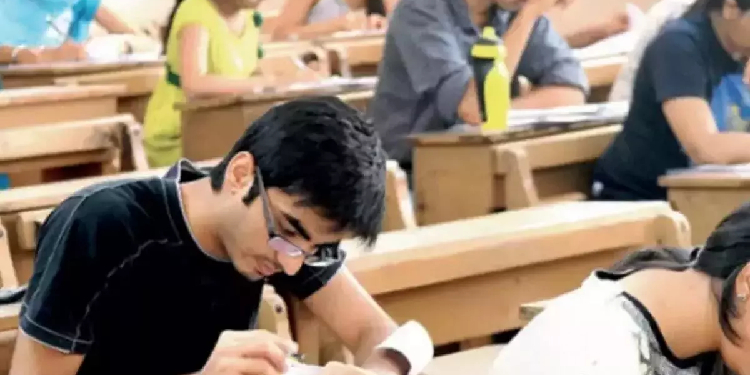JEE Advanced 2025 Tie-Breaking Criteria: The Joint Entrance Examination (JEE) Advanced 2025 is one of the toughest engineering entrance exams in India. Thousands of students compete to secure a seat in prestigious institutions like the Indian Institutes of Technology (IITs). Since multiple candidates may obtain the same score, a tie-breaking policy is used to determine their ranking in a fair and systematic manner. In this article, we will discuss the tie-breaking criteria for JEE Advanced 2025, explaining how the ranking process works when two or more students achieve the same total marks.
What is the Tie-Breaking Policy in JEE Advanced 2025?
The tie-breaking policy ensures that if two or more candidates score the same marks in JEE Advanced 2025, they can be ranked in a justifiable manner. The tie is broken step-by-step using the following criteria:
1. Higher Marks in Mathematics
- The first criterion is the marks obtained in Mathematics.
- The candidate who scores higher marks in Mathematics will be given a higher rank.
- If the tie still exists, then the next criterion is applied.
2. Higher Marks in Physics
- If two or more candidates have the same total score and the same Mathematics score, then the marks in Physics are considered.
- The candidate with higher marks in Physics will be ranked higher.
- If the tie persists, the next rule is applied.
3. Combined Score in Mathematics and Physics
- If the tie is still not broken, the combined score of Mathematics and Physics is considered.
- The candidate with the higher sum of Mathematics and Physics marks will be ranked higher.
4. Age Criteria
- If the tie remains unresolved even after considering Mathematics and Physics scores, then the age of the candidates is taken into account.
- The older candidate will be given preference and ranked higher.
5. Random Draw (Final Criterion)
- In an extremely rare scenario where all the above criteria fail to break the tie, a random draw (lottery system) is conducted.
- A computerized system randomly assigns ranks among the tied candidates.
- This method is rarely used and is only applied when all other tie-breaking rules fail.
Importance of Tie-Breaking Criteria
The tie-breaking policy is essential to ensure:
- Fairness: No two candidates can have the same rank; every student gets a unique ranking.
- Transparency: The step-by-step approach ensures that the process is unbiased and predictable.
- Merit-Based Selection: By prioritizing subject-wise performance, the best candidates get preference.
Step-by-Step Tie-Breaking Process
The following table provides a summary of how the tie-breaking process works:
| Step | Criteria Used | Preference Given To |
|---|---|---|
| 1 | Higher Marks in Mathematics | Candidate with higher Mathematics marks |
| 2 | Higher Marks in Physics | Candidate with higher Physics marks |
| 3 | Combined Score in Mathematics & Physics | Candidate with a higher total in these two subjects |
| 4 | Age of the Candidate | Older candidate is ranked higher |
| 5 | Random Draw | Rank is assigned through a computerized draw |
Aakashians Shine Again in JEE Advanced 2024

| NAME | CRL-Rank (AIR) |
| Rishi Shekher Shukla | 25 |
| krishna sai shishir | 67 |
| Abhishek Jain | 78 |
| Hardik Aggarwal | 93 |
| Ujjawal | 95 |
| Rachit Aggarwal | 98 |
JEE Advanced 2025 Tie-Breaking Criteria FAQs
1. Why is the tie-breaking policy necessary for JEE Advanced 2025?
The tie-breaking policy ensures that each candidate gets a unique rank, preventing confusion when multiple students obtain the same total marks.
2. What happens if two candidates have the same total, Mathematics, and Physics marks?
If this situation occurs, the candidate with the higher combined score in Mathematics and Physics will be ranked higher.
3. How does age play a role in tie-breaking?
If a tie still exists after considering Mathematics and Physics scores, the older candidate will be ranked higher.
4. Has the random draw ever been used in JEE Advanced?
The random draw is extremely rare and is only used if all previous tie-breaking rules fail.
5. Does JEE Advanced give priority to any particular subject?
Yes, Mathematics is given the highest priority, followed by Physics.


